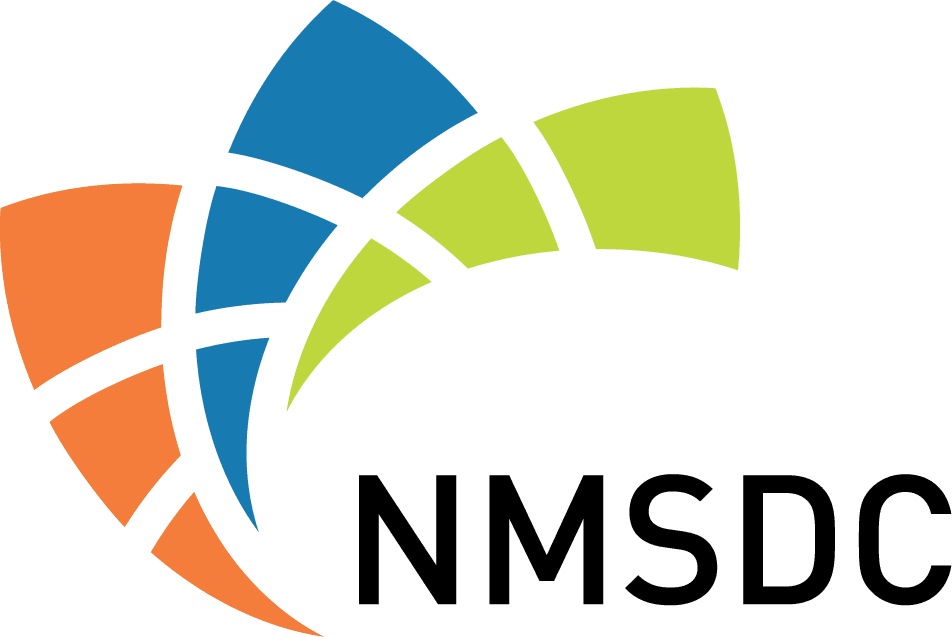As part of NMSDC’s ongoing efforts to lift up DEI and push back against the unfounded and cynical attacks on supplier diversity and other DEI programs, we have started a monthly newsletter and blog feature highlighting the latest DEI news, legal developments, and court filings. Our first installment of this new series is below.
DEI in the News
Utah’s anti-DEI bill passes Senate in last major vote
Salt Lake Tribune Jan. 25, 2024
Attacks on corporate DEI are hurting Black women first
Ms. Magazine Jan. 24, 2024
Small businesses should prepare policies for navigating anti-DEI backlash
Inc Magazine Jan. 23, 2024
America is under attack: inside the anti-DEI crusade
New York Times Jan. 20, 2024
North Carolina ethic panel drops probe over justice’s diversity critique
Reuters Jan. 17, 2024
As legal challenges mount, some companies retool diversity and inclusion programs
Inc Magazine Jan. 16, 2024
DEI programs in US are crumbling under legal battles. Will the trend continue in Australia?
Women’s Agenda Jan. 15, 2024
D.E.I. goes quiet
New York Times Jan. 15, 2024
DEI opponents are using a 1866 Civil Rights law to challenge equity policies in the workplace
Associated Press Jan. 14, 2024
DEI in the crosshairs: reflections on 2023 and predictions for 2024
JD Supra Jan. 10, 2024
The fight over DEI in the C-Suite
New York Times Jan. 4, 2024
Companies are backing away from “DEI”
Axios Jan. 4, 2024
After exit of Claudine Gay, Bill Ackman paints bull’s-eye on diversity programs
CBS News Jan. 4, 2024
Big business scales back ‘diversity’ initiatives as legal pressure mounts
Daily Caller Dec. 24, 2023
DEI in the Courts
American Alliance for Equal Rights v. Fearless Fund Mgmt., LLC
The American Alliance for Equal Rights (AAER) filed a lawsuit against Fearless Fund Management, a venture capital firm owned by Black women. Fearless Fund runs a charitable grant program giving $20,000 in grants to Black female entrepreneurs. AAER claims this program violates Section 1981 and asked for a preliminary injunction.
- On Jan. 3, AAER filed a reply supporting its arguments before the 11th Circuit. AAER emphasized that it had the right to sue, even if some members used pseudonyms, and argued that the fact that members never applied to the contest doesn’t matter because Fearless Fund explicitly excludes businesses that are not Black and not female. AAER also challenged Fearless Fund’s characterization of the program as legal affirmative action, arguing that the use of blanket racial categorizations lacked the structured, measurable benchmarks of a valid affirmative action program under 29 U.S.C. § 1608, and was not sufficiently tailored to meet strict scrutiny.
Grande v. Hartford Board of Education et al.
The plaintiff, a white male physical education teacher in the Hartford school district, filed suit against the Hartford school board after allegedly being forced to attend mandatory DEI training. He claimed that he objected to the content of a mandatory professional development session focused on race and privilege, stating that he felt “white-shamed” after expressing his political disagreement with the training’s purposes and goals and that he was thereafter subjected to a retaliatory investigation and was wrongfully threatened with termination. He claims the school’s actions constitute retaliation and compelled speech in violation of the First Amendment.
- According to the docket, the defendant has not yet been served with the complaint.
Do No Harm v. Vituity
Do No Harm, a group representing doctors and healthcare professionals, sued Vituity, a nationwide physician partnership, over their Bridge to Brilliance Incentive Program. This program offered benefits and sign-on bonuses specifically to qualified Black physicians. The lawsuit claimed this program violated certain laws, including Section 1981 and Section 1557 of the Affordable Care Act, which prohibits discrimination by healthcare providers receiving federal financial assistance. Do No Harm wanted a court order to stop Vituity from closing the program’s application period on Dec. 17, 2023.
- On Jan. 3, both parties agreed to dismiss the case voluntarily. Vituity decided to end the challenged incentive program, and in their joint stipulation of dismissal, they acknowledged ending the “Black Physician Leadership Incentive.” They also agreed that, in the future, when considering incentives, Vituity may only take into account how race affected a physician’s life, using language similar to a Supreme Court case (SFFA v. Harvard) discussing a permissible use of race in the context of school admissions.
Harker v. Meta Platforms, Inc. et al.
A lighting technician who worked on a set where a Meta commercial was produced sued Meta and a film producers association, alleging that Meta and the association violated Title VII, Sections 1981 and 1985, and New York law through a diversity initiative called Double the Line (DTL). The plaintiff also claims that he was retaliated against after raising questions about the qualifications of a coworker hired under the program.
- On Dec. 19, 2023, the defendants filed motions to dismiss the case. They argued that the technician didn’t have the right to sue because he didn’t apply for the position and wasn’t eligible due to having more experience than what the program was designed for. They also argued that the technician had no contractual or employment relationship with them, making it difficult for him to claim a violation of certain laws. Additionally, they said he couldn’t prove that race was the main reason he wasn’t hired. The production company that employed the technician argued that he didn’t have a valid retaliation claim because simply asking questions about the DTL program wasn’t considered a protected activity, and he didn’t mention trying to get rehired.
Alexandre v. Amazon.com, Inc.
White, Asian, and Native Hawaiian plaintiffs, on behalf of a putative class of past and future Amazon “delivery service partner” program (DSP) applicants, challenged a DEI program that provides a $10,000 grant to qualifying delivery service providers who are “Black, Latinx, and Native American entrepreneurs.” Plaintiffs alleged violations of Section 1981 and California state civil rights law prohibiting discrimination.
- On Dec. 6, 2023, Amazon filed its motion to dismiss the amended complaint. Amazon argued the plaintiffs lack standing because the grant program is only available to DSPs and the plaintiffs are not DSPs and have never applied to become DSPs.
Langan v. Starbucks Corporation
A white female former employee of Starbucks sued Starbucks, claiming she was wrongfully accused of racism and terminated when Starbucks unsuccessfully attempted to deliver T-shirts supporting the “Black Lives Matter” movement to her store and accused the plaintiff of rejecting the delivery out of her alleged political opposition to the movement. The plaintiff alleged that she was discriminated against based on her race and disability as part of a programmatic favoring of non-white employees.
- Starbucks filed its motion to dismiss on Dec. 8, 2023.
To receive monthly updates like this by email, sign up for The Pulse newsletter here.


